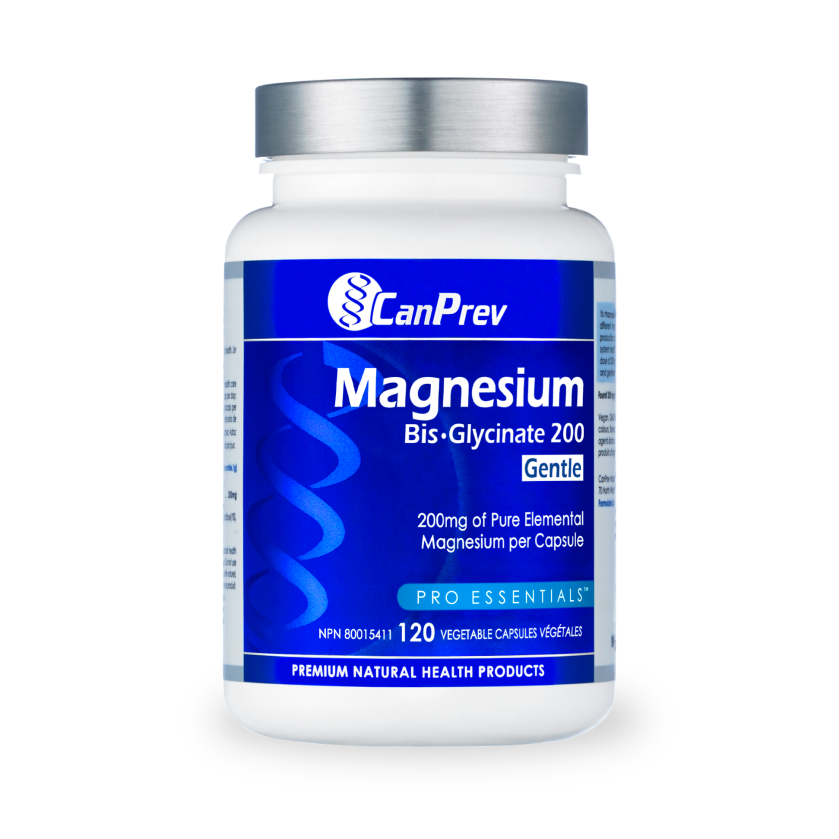The link between magnesium and vitamin D
Our bodies need a wide range of vitamins and minerals to function properly, many of which team up to keep things running efficiently within the body. Magnesium and vitamin D are two important nutrients that each play a different role in the body, and also work together to keep us healthy.
Read on to learn more about these two nutrients and their synergistic relationship.
Get to know vitamin D and magnesium
Vitamin D is a fat-soluble vitamin, commonly known as the sunshine vitamin because it’s synthesized by the body when the sun’s UVB rays strike our skin. It’s responsible for helping us absorb and process calcium and phosphorus, which are needed to support our bones and teeth.
Magnesium plays a role in over 800 enzymatic reactions within the body, including maintaining strong bones and teeth, converting food into energy, creating and repairing DNA and RNA, regulating neurotransmitters, and more. It acts as a cofactor in many processes, such as helping the body metabolize vitamin D so our body can properly use it.
Understanding the relationship between vitamin D and magnesium
The link between vitamin D and magnesium runs deep, with each nutrient impacting the other’s metabolism and function within the body.
How does magnesium support vitamin D?
In order for vitamin D to be able to perform its functions within the body, it needs to be converted into a form that your body can absorb. This is usually done in a two-step process involving magnesium-dependent enzymes:
Step 1: An enzyme called 25-hydroxylase (CYP2R1) found in the liver converts vitamin D into 25-hydroxyvitamin D (25(OH)D).
Step 2: An enzyme called 1α-hydroxylase (CYP27B1) found in the kidneys converts 25(OH)D into 1,25-dihydroxyvitamin D (1,25(OH)2D), also known as calcitriol, the biologically active form of vitamin D.
Although magnesium isn’t directly involved in vitamin D metabolism, sufficient levels of this mineral are crucial for the function of the enzymes involved in this process.
Magnesium is also needed for supporting the function of vitamin D-binding protein (VDBP). VDBP is responsible for maintaining stable levels of circulating vitamin D metabolites. This helps to facilitate the transport of vitamin D through the bloodstream and, in turn, the delivery of vitamin D to the tissues in the body that need it most.
How does vitamin D support magnesium?
The active form of vitamin D plays a role in enhancing magnesium absorption in the intestinal tract. It does this by regulating the expression of magnesium transport proteins, which are specialized proteins in the intestinal cells that actively transport magnesium across the cell membrane.
When we have sufficient vitamin D levels, the enhanced expression of these proteins allows for increased intestinal magnesium absorption. This ultimately helps us maintain adequate levels of magnesium or magnesium homeostasis.
What are the benefits of taking vitamin D and magnesium together?
Since both nutrients work together to support the body in many ways, taking them together can be a great way to maximize their benefits. This in turn can help support your bones, immune system, mood and mental health.
Bone health
Having optimal levels of vitamin D and magnesium helps support the absorption of calcium within the body, which is essential for building and maintaining strong bones. These nutrients also support the strength and quality of our bones, which help to reduce the risk of fractures and osteoporosis as we age.
Immune health
Vitamin D and magnesium can also strengthen our immune system. Vitamin D is essential for the proper function of immune cells like T cells and natural killer cells. Magnesium’s role in activating vitamin D can help ensure our immune defences are strong. Additionally, magnesium is known to have antioxidant properties to help fight oxidative stress and reduce inflammation, ultimately supporting immune function.
Cognitive health
While more research is needed, some studies suggest that deficiencies in magnesium and vitamin D show associations with poor cognition. Since magnesium is essential for vitamin D activation, taking the two nutrients together can help make sure you have sufficient levels of both, ultimately supporting cognitive health.
Increasing your intake of vitamin D and magnesium
If you’re looking to increase your intake of vitamin D, try eating more fatty fish like salmon, as well as mushrooms, egg yolks and milk. For magnesium, try reaching for dark leafy green veggies, avocados and bananas.
When it comes to supplementation, you can find individual formulations or supplements that combine the two nutrients in the same formula. At CanPrev, we understand that everyone has unique health needs, and that’s why we offer a variety of formulas with differing dosages and formats. Here a few options you can start with:
Our D3 Drops contain 2500IU of vitamin D3 per drop in a base of medium chain triglycerides for enhanced absorption.
Our Magnesium Bis-Glycinate 200 Gentle formula offers a therapeutic dose of 200mg of pure elemental magnesium in a form known for its superior absorption and gentleness on the bowels. It’s suitable for most people and is a great option for your everyday magnesium needs.
If you’re looking for a conveniently combined option, try our Magnesium + Vegan D3 & K2. It’s a vegan formula that offers 125 mg of magnesium bis-glycinate, 500IU of vitamin D3 and 60 mcg of soy-free MK-7 vitamin K2 per capsule.
Magnesium and vitamin D depend on each other like good friends. Making sure you have optimal levels of both nutrients through diet and supplementation can help support your bones, immune system and cognitive health.
Sources:
Should You Take Magnesium and Vitamin D Together?
Magnesium and Vitamin D Deficiency as a Potential Cause of Immune Dysfunction, Cytokine Storm and Disseminated Intravascular Coagulation in covid-19 patients
Does magnesium hold the key to vitamin D benefits?
Role of Magnesium in Vitamin D Activation and Function
Vitamin D: Production, Metabolism and Mechanisms of Action
Vitamin D-Binding Protein
Vitamin D, Magnesium and Their Interactions: A Review
Magnesium
Magnesium Deficiency Is Often Overlooked, But There Are Ways to Fix It
Magnesium absorption in the human small intestine. Results in normal subjects, patients with chronic renal disease, and patients with absorptive hypercalciuria
Calcium, Magnesium & Vitamin D: Why Take them Together?
Association of magnesium intake and vitamin D status with cognitive function in older adults: an analysis of US National Health and Nutrition Examination Survey (NHANES) 2011 to 2014
A narrative review on the role of magnesium in immune regulation, inflammation, infectious diseases, and cancer





